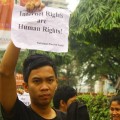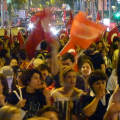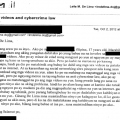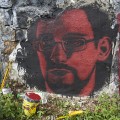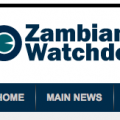Stories about Free Expression from July, 2013
#FreeSafy – Bahrain Arrests Blogger in Dawn Raid
Bahraini blogger Mohammed Hassan was arrested at dawn today. His telephone and computer were confiscated. Netizens are calling for his release.
New Philippine Congress Tackles Digital Rights
After only a week in session, lawmakers have proposed multiple laws that seek to protect user rights online and promote public access to the Internet.
‘Mechanisms of Censorship’ in Ecuador's Communications Law
The controversial new law, among other things, imposes limits on corruption investigations and jeopardizes the dissemination of information of public interest.
Another Journalist Arrested in Zambia
After Wilson Pondamali was arrested and his home searched by police, users reported that independent news site the Zambian Watchdog was inaccessible within Zambia.
MERCOSUR and the Future of the Internet in Latin America
Last Friday, Latin American government leaders issued a strong statement against the mass surveillance of their citizens by the US government at an emergency meeting of MERCOSUR. Activists, academics and NGOs from Latin America wrote an open letter to the regional alliance, inviting leaders to consult with civil society in building human rights-protective Internet policies for the region.
Journalist Charged With Sedition in Zambia
Zambian journalist Thomas Zgambo was arrested and charged with sedition on Tuesday. Another journalist, Clayson Hamasaka, was arrested but released without charges. Advocates suspect that both events were triggered by the journalists' association with the Zambian Watchdog, an independent citizen media outlet that has faced numerous threats from government officials in the past.
Online and Off, Information Control Persists in Turkey
Government efforts to stifle unrest in Turkey in recent weeks has stretched beyond episodes of physical violence and police brutality into the digital world, where information control and media intimidation are on the rise.
Philippine Online Harassment Bill Could Threaten Speech
In an effort to protect women and children against online abuses, Philippine Senator Nancy Binay has filed a bill called Electronic Violence Against Women. Some are worried that the measure, if passed into law, would be used to strictly regulate social media.
Advocates Keep Spotlight on Le Quoc Quan
The trial of Le Quoc Quan, one of Vietnam’s most active human rights defenders and an outspoken blogger, has been postponed by the Vietnamese government without explanation. The blogger has been held in prison without trial and with little ability to see or speak to his lawyer for over six months. Quan's prosecution fits into a wider pattern of oppression of free speech in Vietnam.
Targeting “Rumors” on China's Sina Weibo
Most discussions around Chinese' censorship practice focus on its filtering mechanism, the so-called Great Firewall of China. Yet there is another side of the story that remains unexplored: The virtual community management system that coerces social media users to censor themselves.
Why Would Edward Snowden Want to Go to Ecuador?
The future of Edward Snowden is uncertain. The young American is reportedly sheltered in Moscow's Sheremetyevo Airport, and he has requested asylum from 20 countries. Although it remains unknown where he will go from here, many wonder: Why might Snowden want to go to a country like Ecuador, where restrictions on press freedom appear to be on the rise?
Zambia: ISP Faces Backlash Over Blocked News Site
Zambian telecommunications company Airtel may be facing unintended consequences for allegedly having blocked access to popular citizen news website the Zambian Watchdog. Maiko Zulu, one of the nation’s popular musicians and a human rights advocate, wrote a letter to the Watchdog saying that he was dumping Airtel for blocking the citizen news website.
Zambia: VP “Would Celebrate” Shutdown of News Site
Zambian Vice President Dr. Guy Scott recently told parliament he would celebrate if the Zambian Watchdog, an independent citizen media site, were to shut down. On the evening prior, it suddenly became difficult to access the Zambian Watchdog. Readers abroad claimed they could access the site, while those in Zambia reported they could not.


